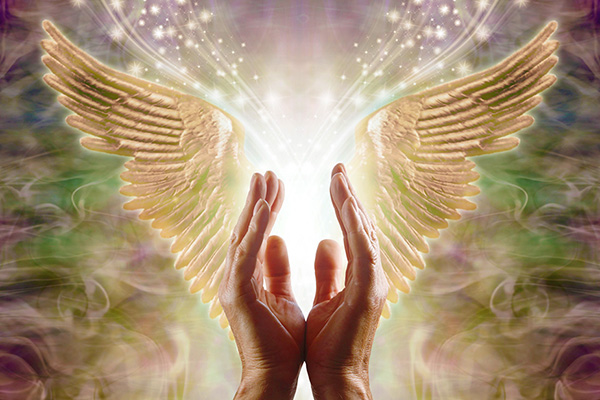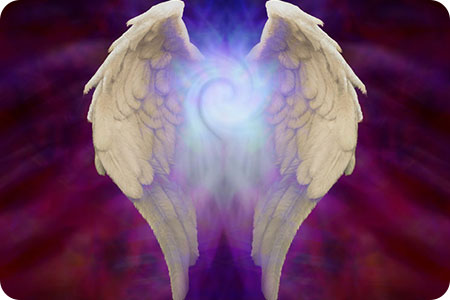judaism
Invoking Archangel Michael In Your Spiritual Practice
 Archangel Michael, the divine warrior and champion of truth and justice, is a powerful figure in many spiritual traditions. He is a prominent figure in Judaism, Christianity, Islam, the Baha’i Faith, and Neo-Paganism.
Archangel Michael, the divine warrior and champion of truth and justice, is a powerful figure in many spiritual traditions. He is a prominent figure in Judaism, Christianity, Islam, the Baha’i Faith, and Neo-Paganism.
His name in Hebrew means “Who is like the Lord?” and his title “Archangel” means “Prince of Angels.” Michael is the leader of the angelic realm and is known for his strength, courage, and protection. He fights for good, empowers the faithful, and accompanies the souls of the righteous to heaven.
He is typically depicted as a warrior, complete with sword and shield. He is also often shown defeating a dragon or other monstrous creature. In Christianity, he is specifically mentioned in the Book of Revelation as battling Satan.
In some depictions, he is shown holding scales. This is a reference to his position as guardian of the dead as their souls leave the earth. Just as the Roman god Mercury accompanied souls to the underworld, Michael is said to accompany the recently deceased on their journey to the other side.
Michael is a venerable spiritual figure and is often invoked in prayer, meditation, and other spiritual practices. Believers invoke his presence for protection, guidance, and spiritual strength.
Navigating Loneliness During the Holidays
 The holiday season is traditionally portrayed as a time of togetherness, love, joy, and belonging. We are inundated with media images of families gathered around a festive table, friends celebrating, and communities coming together.
The holiday season is traditionally portrayed as a time of togetherness, love, joy, and belonging. We are inundated with media images of families gathered around a festive table, friends celebrating, and communities coming together.
Paradoxically, for many people, this time of year is instead filled with feelings of loneliness, isolation and disconnection.
The root cause is the societal stereotype and cultural assumption that everyone should be joyful, happy, and surrounded by loved ones during the holidays. If you’re not, for whatever reason, it can lead to feelings of inadequacy, isolation, and social failure.
Holiday loneliness is exacerbated by the stark contrast between our actual circumstances and the commercially driven, idealized versions of holiday gatherings and celebrations we see in advertisements, television shows, movies, and social media. This increases feelings of disconnection, low self-esteem, and even depression.
Loneliness during the holidays can have a significant impact on mental health. Feelings of isolation and disconnection during this time of year can exacerbate existing mental health issues and lead to the development of new ones. The constant reminders of togetherness and joy, combined with a lack of social connections and meaningful interactions, can increase feelings of loneliness, leading to emotional distress, feelings of emptiness and hopelessness, and a decline in overall well-being.
Gratitude Is The Essential Spiritual Practice
 In a fast-paced world with many distractions and challenges, it is easy to overlook gratitude’s transformative power. Cultivating a mindset of appreciation by acknowledging all the good in our life greatly enhances our well-being and quality of life.
In a fast-paced world with many distractions and challenges, it is easy to overlook gratitude’s transformative power. Cultivating a mindset of appreciation by acknowledging all the good in our life greatly enhances our well-being and quality of life.
Gratitude is advocated in many cultures, religious teachings, and spiritual traditions. It is generally considered the mother of all virtues and the essential spiritual practice. In Judaism, for example, gratitude is considered an essential part of worship. Islam encourages believers to be grateful and express thanks to Allah in all circumstances. Christians are encouraged to praise and give gratitude to God not just in thought and feeling, but also in deeds and action.
Gratitude is also a virtue that Hindus believe should be cultivated in order to live a fulfilling life of inner peace and contentment. Many Buddhist monks begin each day with a chant of gratitude for the blessings in their life. In fact, in Shin Buddhism, gratitude is seen as a primary practice that has priority over meditation and study.
In modern times, scientific research has shed further light on the profound benefits of having an ‘attitude of gratitude.’
While traditionally confined to the realm of philosophy, gratitude has garnered much attention in the field of positive psychology in recent years. Neuroscientists have also begun exploring gratitude from a scientific perspective, seeking to unravel the intricate workings of the brain when we practice and experience gratitude.
The Laying On Of Hands
 The laying on of hands, also known as the imposition of hands, is a ritual act performed in some religious and spiritual traditions. It is used for the purpose of ordination, healing, or the transmission of a spiritual gift or blessing. In this blog article I will explore the different traditions and how they use this ancient practice in diverse ways, with a special focus on healing.
The laying on of hands, also known as the imposition of hands, is a ritual act performed in some religious and spiritual traditions. It is used for the purpose of ordination, healing, or the transmission of a spiritual gift or blessing. In this blog article I will explore the different traditions and how they use this ancient practice in diverse ways, with a special focus on healing.
Judaism
The hands are of particular importance in certain Jewish religious rituals. Deuteronomy 34:9 describes, for example, how Moses laid hands on Joshua, his successor. The term used for it is semicha, meaning ‘leaning of the hands.’
It is also associated with sacrifice. Thousands of years ago, priests practiced semicha by laying hands on the sacrifices right before offering was made. Moses tells Aaron, “This is the thing that God commanded you to do, that God’s presence may appear.” It is understood that this passage in Leviticus 9 refers to the laying on of hands.
Christianity
In the New Testament we find a continuation of the Jewish practice of semicha, still connected to the liturgies of ordination and now also of baptism, in both of which the imposition of hands is an important part of the ritual.
Ordination involves conveying a gift and an authority within the Church. The imposition of hands connected with baptism is a means whereby the convert is born to the ecclesia, or the Christian community. The action itself of laying on hands is connected with the gift of the Holy Spirit and is also used to convey a blessing. For example, in Acts 6:6: “These they set before the apostles, and they prayed and laid their hands on them.” It is also practiced as a means of healing (Luke 4:40).

